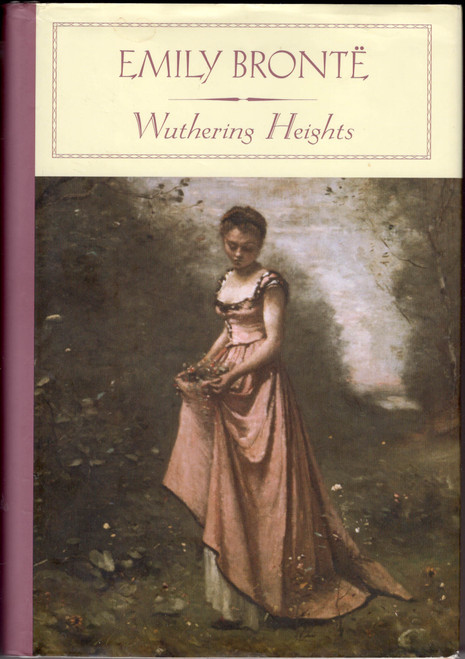Wuthering Heights is a timeless classic penned by Emily Brontë, which explores themes of passion, revenge, and the destructive power of love. Set in the desolate Yorkshire moors, the novel follows the tumultuous relationships between the Earnshaw and Linton families, intertwined with the enigmatic figure of Heathcliff, an orphan taken in by the Earnshaws. Brontë's haunting narrative explores the dark depths of human nature, portraying characters consumed by obsession and haunted by the ghosts of their past. Meanwhile, her vivid descriptions of the Yorkshire landscape add a layer of atmospheric intensity to the narrative, making Wuthering Heights a compelling and enduring work of literature.
With an Introduction by Daphne Merkin and Notes by Tatiana M. Holway
About the Author
Emily Brontë, born in 1818, was the fifth of the six Brontë siblings and lived a short yet impactful life. Raised in the remote Yorkshire village of Haworth, Brontë's literary talents emerged early on as she, alongside her sisters Charlotte and Anne, engaged in imaginative storytelling and poetry writing. Despite facing personal tragedies, including the loss of her mother and two older sisters, Brontë remained dedicated to her craft. Wuthering Heights, published under the pseudonym Ellis Bell in 1847, marked her only novel, yet it secured her a lasting place in literary history. Brontë's introspective and often unconventional approach to storytelling, coupled with her profound exploration of human emotions and psyche, continues to captivate readers worldwide.
Daphne Merkin, a prominent American writer and cultural critic, is known for her incisive commentary on mental health, feminism, and literature. Born in 1954, Merkin has contributed extensively to publications such as The New Yorker, The New York Times Magazine, and Vogue, showcasing her keen intellect and distinctive voice. She is the author of several acclaimed works, including This Close to Happy: A Reckoning with Depression, a memoir that candidly explores her lifelong struggle with mental illness. Merkin's writing is characterized by its introspective depth, unflinching honesty, and profound exploration of the complexities of human experience, establishing her as a leading figure in contemporary American letters.








